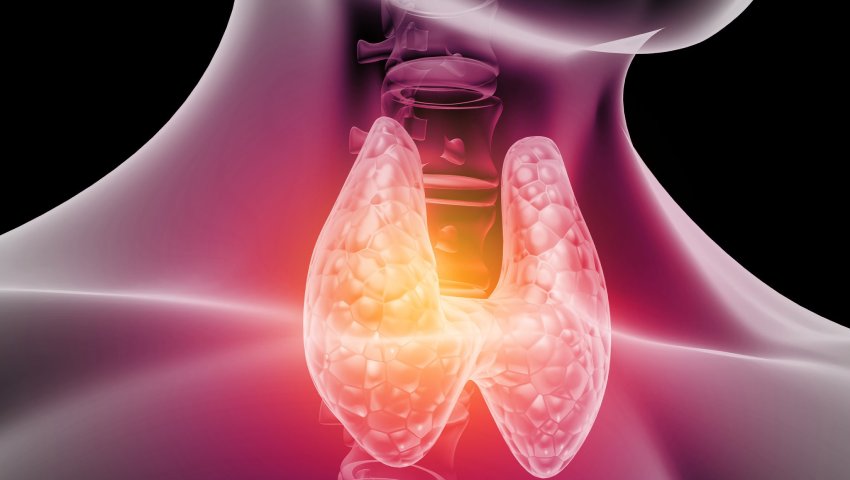
- 28/04/2025
- Dr. Sarang Barbind
- 0 Comments
- General Medicine
Early Signs of Thyroid Disease You Shouldn’t Ignore
The thyroid is a little, butterfly-shaped gland located at the base of the neck. Though small in size, its effect on the body is enormous. It controls metabolism, energy levels, heart rate, temperature, and more. When the thyroid doesn’t function properly, it can lead to a range of health problems collectively known as thyroid disease. According to Dr. Sarang Barbind, a leading General Physician in Wakad, Pune at Leela Superspeciality Hospital, early detection of thyroid disease is important in preventing long-term complications.
Let’s explore the early warning symptoms of thyroid disease you should never ignore, as explained by Dr. Sarang Barbind.
Understanding Thyroid Disease:
Thyroid disease can be broadly categorized into two types:
- Hypothyroidism: When the thyroid gland produces too little thyroid hormone.
- Hyperthyroidism: When it produces too much.
Other thyroid disorders include thyroid nodules, goiter, and thyroid cancer. Many signs of thyroid disease are subtle and may mimic other conditions, making early diagnosis a challenge. That’s why being aware of the early signs is key.
Unexplained Fatigue or Tiredness:
- Feeling constantly drained, even after a good night’s sleep, is one of the most common symptoms of hypothyroidism. When your body doesn’t produce enough thyroid hormones, your metabolism slows down, leaving you feeling sluggish. On the flip side, hyperthyroidism can also cause fatigue, due to your body being in overdrive and burning energy too fast. Persistent fatigue should not be brushed off as just stress or aging. If you feel chronically fatigued without a clear reason, it’s time to consider a thyroid check-up.
Sudden Weight Changes:
- Weight gain without any change in diet or activity is often linked to hypothyroidism. Your body isn’t metabolizing calories as efficiently as it should. Conversely, unintentional weight loss could be a symptom of hyperthyroidism, where your metabolism speeds up and burns calories rapidly. If you’re struggling with unexplained weight fluctuations, don’t ignore it—it could be your thyroid signaling a problem.
Mood Changes and Depression:
- Thyroid hormones have a significant impact on your mental health. Low thyroid hormone levels can lead to sensations of sadness, depression, or even memory lapses. On the other hand, high levels can cause anxiety, nervousness, and irritability. If your mood changes without a psychological trigger or life event, your thyroid could be the underlying cause.
Hair Thinning or Hair Loss:
- Another early symptom of thyroid dysfunction is noticeable hair thinning or hair loss, especially on the scalp and eyebrows. The thyroid hormones are responsible for healthy hair growth, and any imbalance can disrupt the hair growth process. Many patients consult dermatologists for hair loss without realizing the root cause is hormonal. A thyroid panel test can clarify the cause.
Irregular Menstrual Cycles and Fertility Issues:
- Women with thyroid disease may experience differences in their menstrual patterns. Hypothyroidism can lead to heavier and more prolonged periods, while hyperthyroidism may cause lighter or absent periods. Thyroid imbalances can also interfere with ovulation, making it more difficult to conceive. If you’re planning a pregnancy or struggling with infertility, evaluating your thyroid function is necessary.
Sensitivity to Cold or Heat:
- People with hypothyroidism usually feel unusually cold, even in warm environments. This is due to a slowed metabolism. Those with hyperthyroidism may feel too warm and sweat more. This temperature sensitivity is an often-overlooked but telling indication of thyroid imbalance.
Swelling in the Neck:
- An enlarged thyroid gland or a visible swelling in the neck could be a goiter. It may or may not be painful but often means thyroid dysfunction. Sometimes, it can be the first visible clue of a thyroid issue. If you notice swelling or tightness in your neck area or difficulty swallowing, it’s time for a thyroid evaluation.
Constipation or Digestive Changes:
- Thyroid hormones control digestion. In hypothyroidism, the digestive process slows, leading to constipation. In hyperthyroidism, it may speed up, causing frequent bowel movements or diarrhea. If digestive issues continue without dietary triggers, a thyroid test might be required.
Palpitations and Increased Heart Rate:
- An unusually fast or irregular heartbeat is often a sign of hyperthyroidism. Some patients also experience chest discomfort or breathlessness. If you experience such signs, especially at rest, thyroid dysfunction may be the cause.
Dry Skin and Brittle Nails:
- Skin changes, such as excessive dryness, pale complexion, or flaky skin, are signs of hypothyroidism. Nails may also become brittle and break easily. This happens due to slowed cellular turnover and reduced blood flow.
When to See a Specialist?
Dr. Sarang Barbind suggests that if you experience more than one of these symptoms for an extended period, consult a Thyroid Specialist in Pune. Blood tests like TSH, T3, and T4 can help diagnose thyroid issues accurately.
At Leela Superspeciality Hospital, Dr. Barbind and his team offer comprehensive thyroid evaluations, personalized treatment plans, and continuous monitoring to help patients recover their health and hormonal balance.
Why Early Detection Matters?
Ignoring thyroid signs can lead to complications like heart problems, infertility, osteoporosis, and even life-threatening conditions if untreated. With early diagnosis and the right treatment, most thyroid diseases are manageable, and patients can lead a healthy, active life.
Conclusion:
Don’t ignore the whispers of your body. Signs like fatigue, weight changes, or hair loss may seem minor but can be symptoms of an underlying thyroid problem. Getting tested early can prevent years of health issues. The thyroid is small, but its impact is mighty- listen to it.
If you’re experiencing any of the symptoms mentioned above, book a consultation with Dr. Sarang Barbind at Leela Superspeciality Hospital today and take the first step towards better thyroid health.

